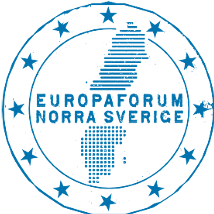The European Commission’s proposal for a Directive on Soil Monitoring and Resilience includes land districts across the EU, monitoring of all land by satellite, regular soil sampling and opportunities for the European Commission to take soil samples from individual landowners. In the next step, coercive measures and the possibility of sanctions against landowners are proposed.
The land is our most important heritage and needs to be protected, states Europaforum Northern Sweden (EFNS) in a recently adopted position paper, and argues that the proposal should be withdrawn or re-worked in a number of areas.
According to the European Commission’s impact assessment, the costs will be higher for Sweden due to fewer inhabitants and vast land areas, while Sweden already has a comprehensive and well-functioning system for monitoring soil health. On this basis, the usefulness of an additional system above the national ones can be questioned and needs to be clarified. Instead, the EU should be able to obtain information on soil health through a request to the member states and then allow this data to be compiled in a harmonised way, according to EFNS.
“In northern Sweden, there is also a risk that the Soil Directive will be extra expensive because there are fewer citizens per square kilometre than elsewhere in the EU, and that needs to be taken into account. In addition, we already have a well-developed monitoring of land in Sweden, new systems should be able to harmonise better with this”, says Isak Utsi, Mayor of Arjeplog municipality and rapporteur in EFNS, Norrbotten.

Isak Utsi, Mayor of Arjeplog municipality and rapporteur in EFNS
EFNS also questions whether it is reasonable to use the same model for monitoring such widely different land types in such a geographically diverse area as the EU and points out that Arctic mountains and vast forests have a weak connection to fruit cultivation in southern Europe. Using the same model for soil monitoring across the EU risks wasting resources on measuring indicators with no value instead of focusing on locally known problems.
“One solution could be, for example, that a smaller number of common criteria are established, which can be supplemented by the member states being given the opportunity to develop additional criteria based on prevailing local conditions,” says Isak Utsi.
Europaforum Northern Sweden’s positions in brief:
In Sweden, with a large bioeconomy from forestry and agriculture, we are well aware of the importance of soil health and regularly measure its condition. We generally have good soil health in Sweden, according to Swedish soil experts.
The indicators set out in the directive appear to be adapted for agricultural land and are directly incorrect for woodland in Sweden.
Agricultural land within the EU is already environmentally managed by the Common Agricultural Policy (CAP), and the measures that the Soil Directive specifies for soil improvement are already well known in agriculture. For example, the importance of crop rotation, nitrogen-fixing plants such as clover in grassland and limited ploughing.
EFNS is very critical of increased central monitoring of all land in Sweden by satellite, as this can affect privacy, especially in the longer term. Such monitoring should be governed nationally.
EFNS supports Sweden’s national views on the importance of respect for member states’ competences as well as existing national processes within soil health. The Soil Directive may regulate issues that can be considered to fall within national competence at several different levels. The EFNS therefore calls for a great deal of flexibility in any implementation and for respect of the principles of subsidiarity and proportionality. Furthermore, Swedish local self-government and the municipal planning monopoly need to be respected, for example on the basis of proposed principles for the appropriation of land (Article 11). In particular, EFNS argues that the Soil Directive should enable, and not impede increased urban development. This applies not least to the military build-up within the total defence and investments aimed at the green transition.
The position paper was adopted by Europaforum Northern Sweden on 6 October 2023. Read it in its entirety here.

